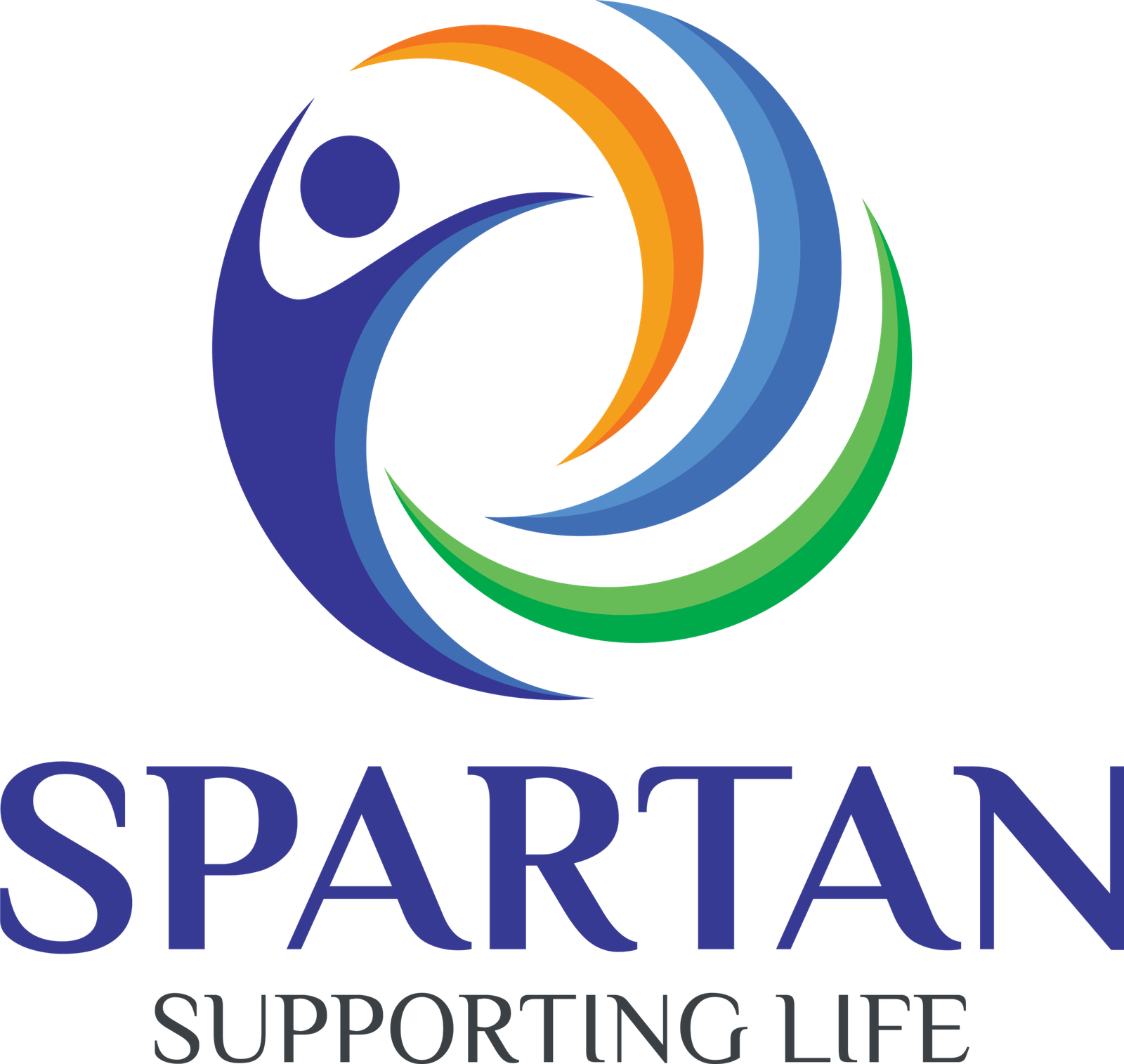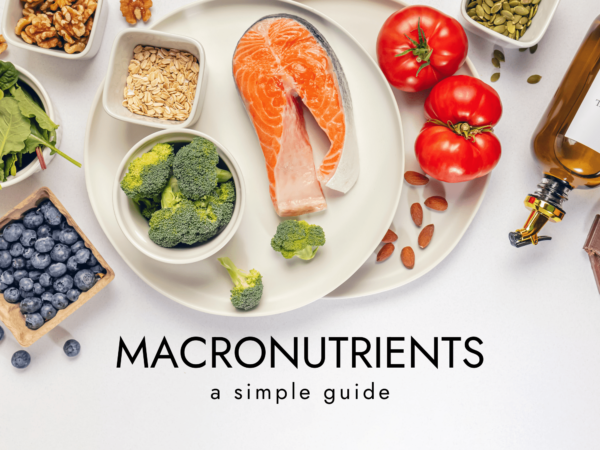As we go through life, our bodies require proper nourishment to keep us in harmony with the rhythm of life. For women, nutrition plays a particularly critical role in maintaining good health. In this article, we’ll explore the impact that nutrition for women has on their health throughout their journey, and how it can help them stay in tune with the different phases of life.
Read on to discover how you can navigate the complexities of nutrition for women and how it impacts health, including the proper balance of hormones and the importance of essential nutrients. Start crafting good health, one meal at a time. Let’s get started!
Why Nutrition Holds the Key to Women’s Well-being
Nutrition isn’t just about satisfying hunger; it’s a cornerstone of women’s overall health and vitality. The unique physiological and hormonal fluctuations women experience across various life stages emphasise the critical role of proper nutrition. Here’s why food takes centre stage in women’s well-being:
Hormonal Harmony
Women’s bodies dance to the rhythm of hormones that influence everything from mood to metabolism. Adequate nutrition supports hormonal balance, helping to alleviate menstrual discomfort, manage mood swings, and even navigate the transformative journey of menopause.
Bone Health
Women are more prone to osteoporosis, a condition characterised by weakened bones. Sufficient calcium and vitamin D intake from an early age, combined with other bone-supporting nutrients, builds a solid foundation for maintaining bone health through the years.
Reproductive Wellness
Nutrition plays a vital role in fertility, pregnancy, and post-partum recovery. Essential nutrients like folate are crucial for preventing birth defects. At the same time, a well-rounded diet supports healthy pregnancies and supports both mother and child.
Energy and Vitality
The demands of modern life can be relentless, and women often find themselves juggling numerous roles. Proper nutrition provides the energy and stamina needed to tackle daily challenges while promoting mental clarity and emotional well-being.

Disease Prevention
A balanced diet rich in antioxidants, vitamins, and minerals offers protection against chronic diseases such as heart disease, diabetes, and certain cancers. Nutrient-dense foods help bolster the immune system and combat inflammation, reducing the risk of these ailments.
Cognitive Health
Omega-3 fatty acids, found in fatty fish and nuts, contribute to brain health and cognitive function. As women age, these nutrients become especially valuable in maintaining memory, focus, and mental acuity.
Managing Weight
Hormonal changes and metabolic shifts can impact weight management. A balanced diet that includes lean proteins, properly chosen whole grains, and healthy fats helps women maintain a healthy weight and supports sustainable weight loss if needed.
Emotional Well-being
The connection between nutrition for women and mental health is profound. Nutrient-rich foods can influence neurotransmitter production, affecting mood regulation and contributing to reduced stress and anxiety. In essence, nutrition isn’t just a source of sustenance; it’s a guiding force that shapes the intricate tapestry of women’s lives. By embracing informed food choices and nourishing their bodies with intention, women empower themselves to lead healthier, more vibrant lives.
Why is proper guidance significant?
As women, we know that our nutritional needs are unique and change throughout our lives. It’s essential to make good choices now to ensure a healthy future. But making the right choice at the right time is not always that simple. That is why proper guidance is paramount. Nutrition coaching can be a game changer when it comes to developing healthy habits that further proper nutrition for women. At SPARTAN, we understand that every woman’s relationship with food is unique. That is why we offer personalised nutrition for women.
SPARTAN’s at-home app tracks your unique reactions to different foods and how they might impact your well-being. You can discover the optimal foods tailored to your current life stage and nutritional needs through the SPARTAN L.A.W. System. This approach empowers you to embark on a path nurtured by personalised nourishment, embracing a journey that’s truly your own.
Take a free quiz to learn more about how SPARTAN can optimise your journey.

Navigating the Lifelong Journey of Nutrition for Women
Nutrition isn’t a static concept; it’s a dynamic journey that evolves alongside the various stages of a woman’s life. From the budding years of adolescence to the transformative phases of adulthood and beyond, the nutritional needs of women change, demanding tailored attention and care.
Adolescence: Building the Foundation
 During adolescence, proper nutrition lays the foundation for a healthy future. Adequate nutrition for women in these formative years supports growth, development, and hormonal changes which mark puberty. Calcium and vitamin D take the spotlight, supporting bone development and growth spurts. Iron becomes crucial due to menstrual cycles, preventing fatigue and anaemia. It’s a time to embrace colourful fruits, veggies, and whole grains, setting the stage for lifelong health.
During adolescence, proper nutrition lays the foundation for a healthy future. Adequate nutrition for women in these formative years supports growth, development, and hormonal changes which mark puberty. Calcium and vitamin D take the spotlight, supporting bone development and growth spurts. Iron becomes crucial due to menstrual cycles, preventing fatigue and anaemia. It’s a time to embrace colourful fruits, veggies, and whole grains, setting the stage for lifelong health.
Focus: Calcium, vitamin D, and iron are essential during this phase.
The Reproductive Years: Nurturing life
 In the reproductive years, nutrition for women takes on new dimensions. Fertility, pregnancy, and post-partum periods demand specialised diet—folate steps into the limelight, safeguarding against congenital disabilities during pregnancy. Iron remains vital, while omega-3 fatty acids support heart and brain health. The diet becomes a partner in fertility, pregnancy, and post-partum recovery, embracing nutrient-rich foods to nourish both mother and child.
In the reproductive years, nutrition for women takes on new dimensions. Fertility, pregnancy, and post-partum periods demand specialised diet—folate steps into the limelight, safeguarding against congenital disabilities during pregnancy. Iron remains vital, while omega-3 fatty acids support heart and brain health. The diet becomes a partner in fertility, pregnancy, and post-partum recovery, embracing nutrient-rich foods to nourish both mother and child.
Focus: Sufficient folate, iron, and omega-3 intake are essential for a healthy pregnancy.
Menopause: Embracing Change

As menopause arrives, women’s bodies undergo another transformation. Calcium and vitamin D continue to shine, protecting bone health as estrogen levels fluctuate. A balanced diet focused on nutrition for women during the change becomes paramount to manage weight and support hormonal changes. Lean proteins, whole grains, and phytoestrogen-rich foods make a smoother transition.
Focus: Prioritise calcium and vitamin D for bone health, and focus on a balanced diet to manage weight and hormone-related changes.
Golden Years: Ageing Gracefully
 Entering the golden years, maintaining health and vitality takes precedence. Protein intake becomes essential to preserve muscle mass, while antioxidants combat free radicals and inflammation. Hydration, omega-3s, and fibre remain integral for overall well-being, contributing to heart, brain, and bone health.
Entering the golden years, maintaining health and vitality takes precedence. Protein intake becomes essential to preserve muscle mass, while antioxidants combat free radicals and inflammation. Hydration, omega-3s, and fibre remain integral for overall well-being, contributing to heart, brain, and bone health.
Focus:Protein, Omega-3s, hydration, fibre and antioxidant-rich foods
The Common Thread: Balanced Choices
Throughout this journey, a common thread binds these stages: the importance of balanced choices. Nutrient-rich foods like fruits, vegetables, lean proteins, and whole grains form the backbone of a healthy diet and further proper nutrition for women throughout their life stages. Hydration and mindful eating practices sustain well-being at every step.
Women are empowered by the knowledge that nutrition isn’t a one-size-fits-all concept. It’s an evolving relationship that adapts to our changing bodies and needs. So, let’s embrace each stage with awareness, make informed choices, and celebrate the remarkable journey of women’s nutrition through time.
HEALTHY HABITS THAT FURTHER PROPER NUTRITION FOR WOMEN

FOCUSING ON THE RIGHT NUTRIENTS
Women’s bodies undergo unique physiological changes due to hormonal fluctuations, which directly impact their dietary requirements. Several essential nutrients play a pivotal role in maintaining women’s health:
- Calcium: For bone health, calcium becomes even more crucial as women age, reducing the risk of osteoporosis and fractures.
- Iron: Adequate iron intake is essential to prevent anaemia, a common concern for women. Understanding the difference between heme and non-heme iron sources helps in optimizing absorption.
- Folate: Essential for women of childbearing age, folate supports reproductive health and reduces the risk of congenital disabilities.
- Omega-3 Fatty Acids: These fats are known for their anti-inflammatory properties and contribute to heart and brain health, both vital for women’s well-being.
- Caloric and Macronutrient Needs: Energy requirements and macronutrient balance vary based on age, activity level, and life stage. Finding the right balance supports weight management and sustained energy levels.
CHOOSING THE RIGHT NUTRIENT DENSE FOODS

Bone Health: Calcium and vitamin D are essential to maintain strong bones and reduce the risk of osteoporosis. Dairy products, fortified foods, leafy greens, and fatty fish are excellent sources.
Iron Intake: Choose iron-rich foods like lean meats, beans, lentils, and fortified cereals. Pairing them with vitamin C-rich foods enhances iron absorption.
Folate Importance: Include dark leafy greens, citrus fruits, and legumes to ensure sufficient folate intake, especially during reproductive years.
Omega-3 Fatty Acids: Fatty fish, flaxseeds, chia seeds, and walnuts are excellent sources of omega-3s that support heart health and reduce inflammation.
Caloric Needs and Macronutrient Balance: Focus on nutrient-dense foods and adjust caloric intake based on activity levels – balance carbohydrates, proteins, and fats for optimal health.
ADOPTING STRATEGIES FOR A BALANCED DIET

Variety is Key: Incorporate a rainbow of fruits, vegetables, whole grains, lean proteins, and healthy fats into your meals.
Stay Hydrated: Water is crucial for digestion, metabolism, and maintaining healthy skin. Herbal teas and infused water are great alternatives.
Mindful Eating: Listen to your body’s hunger cues, and eat slowly to savour each bite. Avoid emotional eating by finding healthier outlets for stress.
Meal Planning and Preparation: Plan meals in advance to ensure balanced choices, even on busy days. Preparing snacks and meals in advance can prevent unhealthy eating habits.
SOLUTIONS FOR DEALING WITH COMMON CHALLENGES

Cravings and Emotional Eating: Opt for nutrient-dense alternatives when cravings strike. Satisfy sweet cravings with fruits or a small piece of dark chocolate.
Busy Lifestyles: Keep portable and nutritious snacks on hand, like nuts, yoghurt, or cut-up veggies with hummus.
Vegetarian or Vegan Diets: Pay attention to protein, iron, calcium, and vitamin B12 sources. Incorporate legumes, tofu, fortified plant-based milk, and fortified cereals.
ADDRESSING SPECIAL NUTRITIONAL CONCERNS

PCOS (Polycystic Ovary Syndrome): Focus on managing insulin resistance through a balanced diet rich in whole foods, fibre, and complex carbohydrates.
Gestational Diabetes: Control blood sugar levels during pregnancy by monitoring carbohydrate intake and choosing complex carbs.
Menstrual Irregularities: Nutritional approaches can help support a healthy menstrual cycle. Adequate iron intake, omega-3s, and specific vitamins and minerals are essential.
CONSULTING A HEALTHCARE PROFESSIONAL

While this guide provides valuable insights, it’s essential to remember that individual nutritional needs can vary. Consulted dietitians or nutritionists can help tailor your nutrition plan to your health goals and requirements. Regular health check-ups and blood tests provide insights into your nutritional status and overall well-being.
Summary
Nutrition is a powerful tool that women can harness to optimize their health and well-being. By understanding their unique nutritional needs, considering the challenges of different life stages, and implementing mindful strategies, women can make informed food choices that pave the way for a healthier, more vibrant life. Embrace the holistic approach to well-being that proper nutrition offers, and embark on a journey towards better health today.
KEY TAKEAWAY POINTS: NUTRITION FOR WOMEN
- Women’s nutritional needs evolve with life stages and hormonal changes. Nutrition for women must as well.
- Essential nutrients include calcium, iron, folate, and omega-3 fatty acids.
- Prioritize bone health through calcium and vitamin D intake.
- Boost iron consumption for energy and prevent anaemia.
- Folate supports reproductive health and prevents congenital disabilities.
- Include omega-3 sources for heart and brain health.
- Balance calories and macronutrients for sustained energy.
- Adjust nutrition for women for different life stages: adolescence, pregnancy, and menopause.
- Embrace variety with colourful, nutrient-rich foods.
- Mindful eating and hydration promote well-being.
- Address challenges like cravings and busy schedules.
- Vegetarian diets require careful protein, iron, and B12 sources.
- Special concerns like PCOS and gestational diabetes require attention.
- Consult professionals for guidance in creating a personalised nutrition plan for women.
- Proper nutrition empowers women for a healthier life.




